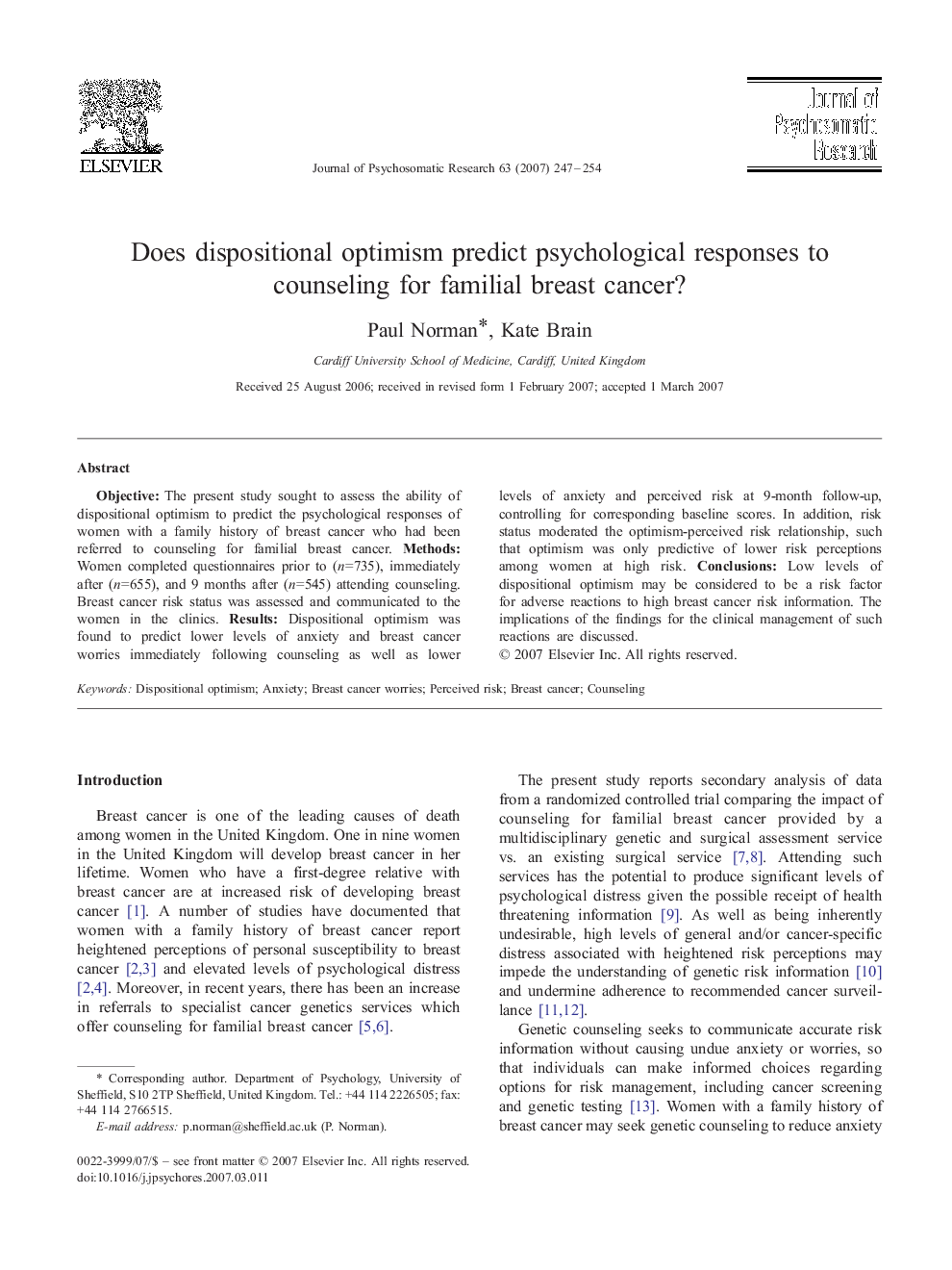| کد مقاله | کد نشریه | سال انتشار | مقاله انگلیسی | نسخه تمام متن |
|---|---|---|---|---|
| 950518 | 926827 | 2007 | 8 صفحه PDF | دانلود رایگان |

ObjectiveThe present study sought to assess the ability of dispositional optimism to predict the psychological responses of women with a family history of breast cancer who had been referred to counseling for familial breast cancer.MethodsWomen completed questionnaires prior to (n=735), immediately after (n=655), and 9 months after (n=545) attending counseling. Breast cancer risk status was assessed and communicated to the women in the clinics.ResultsDispositional optimism was found to predict lower levels of anxiety and breast cancer worries immediately following counseling as well as lower levels of anxiety and perceived risk at 9-month follow-up, controlling for corresponding baseline scores. In addition, risk status moderated the optimism-perceived risk relationship, such that optimism was only predictive of lower risk perceptions among women at high risk.ConclusionsLow levels of dispositional optimism may be considered to be a risk factor for adverse reactions to high breast cancer risk information. The implications of the findings for the clinical management of such reactions are discussed.
Journal: Journal of Psychosomatic Research - Volume 63, Issue 3, September 2007, Pages 247–254